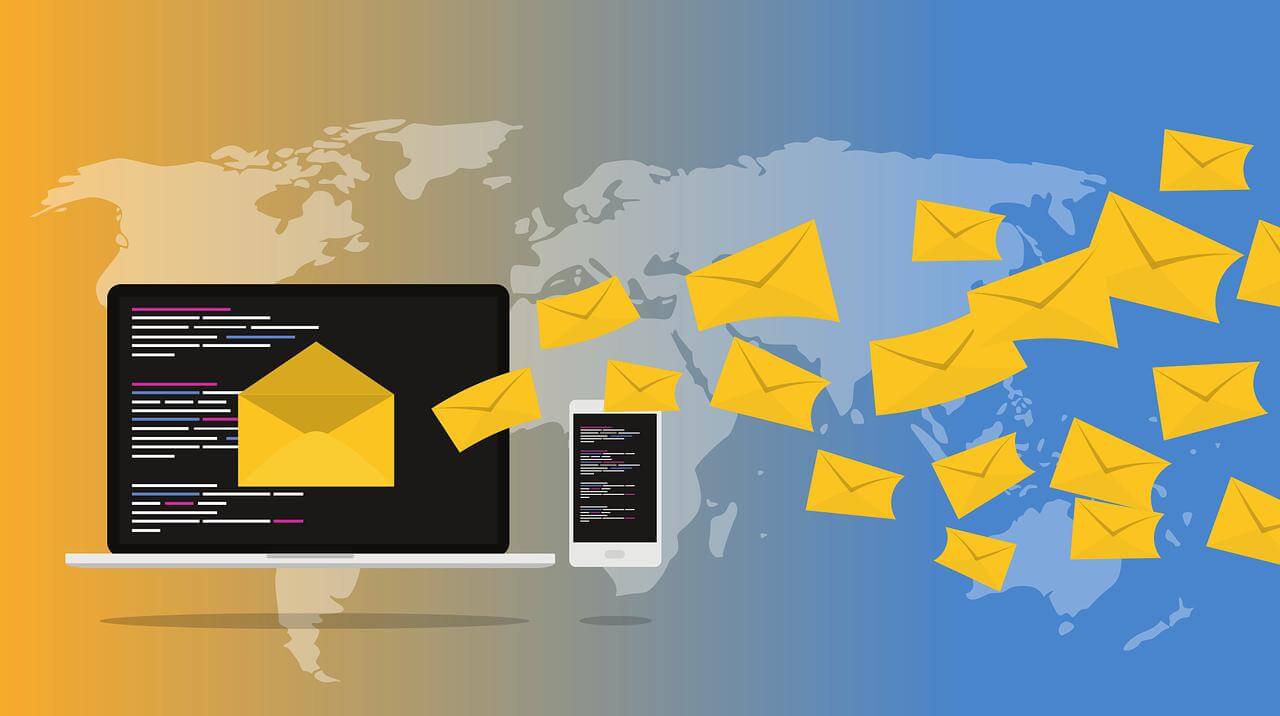Things To Consider Before You Start Email Scraping
Email scraping can be a powerful tool for building a lead database for email marketing, but it's a process that must be approached with caution and due diligence. Before you initiate an email scraping operation, here are critical elements to consider to ensure that your methods are effective, ethical, and legal.
1. Legal Compliance
Ensure that your scraping activities comply with international and local regulations such as the General Data Protection Regulation (GDPR) in the EU, the CAN-SPAM Act in the USA, and other data protection laws. Understand the legal nuances of consent and the right to privacy. It’s paramount that you seek legal advice to navigate these complexities and implement compliant procedures.

2. User Consent
Reflect on the ethical dimensions of scraping emails without user consent. Today's consumers are increasingly aware of their digital rights and expect transparency and respect for their privacy. Consider the implications for your brand reputation and the potential for losing customer trust.

3. Data Relevance
Collecting thousands of emails may seem like a success, but if they're not relevant to your business, they won’t add value. Define your target audience clearly and focus on scraping emails that align with your customer personas. Quality over quantity should guide your scraping strategy.

4. Source Legitimacy
Evaluate the legitimacy of your data sources. Scrape emails from sources where individuals have a reasonable expectation to be contacted for business purposes, such as industry directories prospects email addresses, or public business profiles, rather than personal blogs or forums.
5. Technical Considerations
Before scraping, assess whether you have the technical capabilities to do so efficiently and responsibly. This includes using the right tools that can differentiate between relevant and irrelevant data, as well as having measures in place to avoid overloading the servers of the websites from which you're scraping.
6. Data Security
Implement robust security measures to protect the data you collect. Secure storage and handling of personal data are not only best practices but often legal requirements. Data breaches can lead to significant fines and damage to your brand's reputation.
7. Long-Term Strategy
Consider how scraped emails fit into your long-term marketing strategy. Are you prepared to nurture these leads responsibly? How will you segment and target these contacts? Your strategy should be designed to build relationships, not just blast emails.
8. Avoiding Spam Traps
Be aware that some emails may be 'spam traps' set up to catch malicious scrapers. Sending emails to these addresses can damage your sender score and affect email deliverability. You must have a process in place to identify and collect email addresses to avoid these traps.
9. Ethical Scraping Practices
Develop a code of conduct for ethical the best email scraping tools. This includes respecting the terms and conditions of websites, not scraping protected content, and being transparent about your intentions when using scraped emails.
10. Technical Countermeasures
Be mindful that websites may employ anti-scraping technologies. Attempting to circumvent these can reflect poorly on your business and can even lead to legal action. Instead, focus on building a database through ethical means.

Email scraping for marketing purposes is not just about gathering as many emails as possible. It's about collecting the right data in the right way. By considering the above factors before starting your bulk email search and scraping process, you can ensure that your marketing efforts are not only successful but also sustainable and respectful of consumer rights and expectations.
"Facing challenges in web scraping? Learn how proxy rotation can be a game-changer."
Read: Challenges in web scraping and how proxy rotation helps overcome them
Types of Email Scrapers
Email scrapers come in various forms, each with its unique capabilities and purposes. When considering incorporating an email scraper into your marketing toolkit, it’s important to understand the types available and select the one that aligns with your goals and ethical guidelines. Here's a rundown of the common types of email scrapers you might encounter:
1.Browser Extensions and Plugins
These are simple tools that integrate with your web browser. They are user-friendly and ideal for marketers who are not looking for large volumes of data. Browser extensions can scrape emails from the web pages you visit, often requiring just a click of a button.
Features to Consider:
- Ease of use for non-technical marketers.
- Limited by what is visible on the web page.
- Potential for manual oversight to ensure data quality.
2. Cloud-Based Scrapers
Cloud-based scrapers offer the advantages of powerful server-based processing without the need to use your own computer's resources. They can run continuously and handle large amounts of data.
Features to Consider:
- Scalability to handle vast amounts of data.
- Accessible from anywhere, making it convenient for teams.
- Subscription models that can scale with your business needs.

3. Custom-Built Scrapers
For those with specific needs that off-the-shelf tools cannot meet, custom scrapers built by developers can be a solution. These are tailored to the specific architecture of target websites and can be adjusted for optimal performance.
Features to Consider:
- Highly customizable to your specific requirements.
- Potential for integration with existing marketing tools and databases.
- Higher initial investment in development and maintenance.
4. Automated Scraping Bots
Automated bots can perform the scraping task with minimal human intervention. They can be programmed to navigate websites, identify emails, and extract data from them automatically.
Features to Consider:
- High efficiency and speed.
- Can be scheduled to scrape at optimal times.
- Risk of being blocked by anti-scraping technologies if not carefully managed.

5. Email Parsing Tools
Email parsing tools extract emails collecting email addresses from the content of existing documents or data sets rather than from websites. They are useful for marketers who already have access to large documents and need to extract contact information efficiently.
Features to Consider:
- Ability to process various file formats (e.g., PDFs, Word documents, CSVs).
- Can often sort and organize data after extraction.
- Useful for complying with data minimization principles.

Each type of email scraper has its own set of strengths and potential drawbacks. When selecting an email scraper, consider factors such as the volume of data you need, the level of precision required, compliance with data protection laws, and the resources you can allocate to this aspect of your marketing strategy.
"Want to learm more about web scraping proxy? Check out this in-depth analysis."
Techniques for Scraping Email Addresses
Scraping email addresses is a technical process that involves various techniques suited to different levels of scale and complexity. Here’s a look at some of the methodologies that can be employed to harvest and scrape email addresses and data from various online sources:
1. Pattern Recognition:
One of the most common methods involves programming the scraper to recognize and collect strings of text that match the pattern of an email address (typically containing the "@" symbol and a domain). This is often achieved through regular expressions (regex), a powerful tool for matching text patterns.
2. HTML Parsing:
This technique requires the scraper to analyze the HTML code of a webpage and extract valid email addresses. It can be particularly effective on web pages where email addresses are consistently formatted or marked up with HTML tags, such as .
3.Social Media and Forums:
Some scrapers are designed to gather emails from social media profiles and forums. These sources often require more sophisticated email scraping tools and techniques due to the dynamic nature of the content and potential privacy settings.

4. API Utilization:
Some platforms offer APIs that allow for the extraction of public information, including email addresses. Using APIs is a more reliable and respectful way to access data because it is facilitated by the platform itself under certain terms and conditions.

5. Crawling Multiple Web Pages and Sitemaps:
Advanced scrapers can crawl through multiple pages of a website, including following links to discover new pages. They may also utilize sitemaps to find all the accessible pages on a website where a prospect's email address and addresses can be found.
6. CAPTCHA Solving:
Some websites use CAPTCHAs to prevent bots from scraping their data. While there are techniques to bypass CAPTCHAs, they often enter an ethical grey area and may breach the website’s terms of service.

7. Proxy Servers and IP Rotation:
To avoid being blocked by websites, scrapers can use proxy servers and IP rotation. This technique involves changing the IP address from which the scraping is done periodically, making it harder for anti-scraping technologies to detect and block the web scraper.

When discussing techniques for scraping email addresses, it is important to reiterate the importance of ethical and legal considerations. Highlight that while a technique used scrape email data may be technically possible, it must be employed in a manner that respects privacy laws and the website's terms of use. Remind readers to prioritize obtaining consent and maintaining transparency in their data collection practices to uphold the trust of their audience and the integrity of their brand.
Benefits of Web Scraping for Email Marketing
Web scraping, when employed ethically and effectively, can be a boon for email marketing campaigns and social media platforms. It streamlines data collection and can offer a competitive edge in a crowded digital marketplace. Here’s how:
1. Expanding Your Reach
Web-scraping tools can help businesses quickly gather email addresses, allowing them to expand their reach more efficiently than traditional methods. This broader reach can potentially translate into higher engagement rates and increased sales opportunities.
2. Enhanced Targeting
By filtering scraped data, marketers can segment their audience more precisely, ensuring that their campaigns reach the most receptive viewers. Tailoring your message to the right audience improves conversion rates and ROI on marketing efforts.
3. Saving Time and Resources
Manually collecting large volumes of email addresses is time-consuming and labor-intensive. Automated scraping tools can perform the same task at a fraction of the time, freeing up resources to focus on strategy and content creation.
4. Real-Time Data Access
In the fast-paced digital environment, having access to real-time data is crucial. Web scraping allows for the collection of up-to-date business email address contacts, which means businesses can respond quickly to emerging trends and changes in the marketplace.
5. Cost-Effectiveness
The cost of acquiring leads through a web scraping tool can be significantly lower than other methods, such as purchasing email lists or running paid ads. This cost-efficiency makes it an attractive option, particularly for smaller businesses with limited marketing budgets.
6. Improved Customer Insights
With advanced scraping techniques, businesses can gather more than just email addresses; they can collect information about potential customers' interests and online behaviors, leading to more informed and customer-centric marketing strategies.

7. Scalability
As your business grows, your email marketing campaigns will need to scale accordingly. Web scraping is inherently scalable; you can start small and increase the volume as your business's capacity to engage new leads grows.
While the benefits are considerable, it is always essential to weigh them against ethical considerations and to ensure that your scraping practices align with legal regulations. Businesses should not only aspire to be effective marketers but also responsible data stewards, ensuring that the trust between them and their customers is maintained.
Leveraging DataHen's Expertise for Hassle-Free Email Scraping
In the dynamic world of email marketing, having access to up-to-date and relevant email lists is vital, but the process of acquiring them can be daunting. This is where DataHen comes into the picture—streamlining the web scraping process to bolster your email marketing campaigns without the need for in-house scraping tools or expertise.
Click the link here to learn more.
